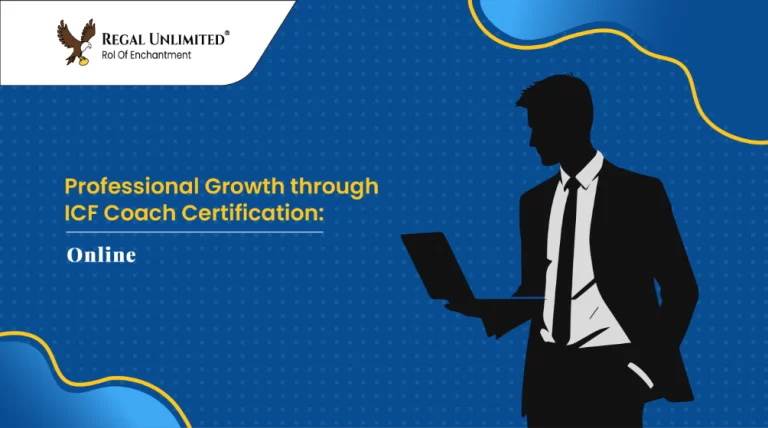In professional coaching, the International Coach Federation (ICF) stands as a beacon of excellence and a symbol of commitment to the highest standards in coaching. The ICF Certification is more than just a credential; it’s a gateway to a vibrant, global community of ICF-certified coaches. Those who embark on the coaching journey become part of a unique ecosystem that enriches their coaching competence through rigorous training, peer learning, and exposure to diverse coaching philosophies.
The Essence of ICF Coaching Certification
As the leading global coaching organization, ICF sets stringent standards for coaching certification. These standards are designed to strengthen the knowledge and ensure the practical proficiency of ICF-certified coaches. An ICF certification is a testament to a coach’s commitment to professionalism, ethical practice, and continuous learning. But beyond this, the certification paves the way to joining an elite community of coaches, each bringing unique experiences and insights.
A Community of ICF-Certified Coaches
The journey to becoming an ICF-certified coach is transformative. It involves rigorous training, mentorship, and assessment. However, the learning continues beyond receiving the certification. The ICF Certified Coaches Community is an ever-evolving, dynamic group of professionals committed to personal and collective growth. In this community, novice and veteran coaches share a common platform, facilitating an exchange of ideas, strategies, and experiences that are invaluable for professional growth.
ICF Certified Coaches Community – Diversity and Inclusivity
The ICF-certified coaches community is distinguished by its commitment to coaching excellence and its dedication to enhancing a culture of diversity and inclusivity. This diversity is reflected in its members, who come from various cultural, geographical, and professional backgrounds. In such a vibrant environment, coaches are exposed to many perspectives, enhancing their ability to connect with and understand clients from various walks of life.
Read our blog on Significance of cultural competence in ICF-approved coaching programs to understand how ICF coaching programs enhance cultural competence, which in turn enhances coach training outcomes.
This inclusivity extends beyond mere representation. It’s about creating a space where every voice is valued and every experience is seen as an opportunity for learning. Coaches in this community learn to approach coaching sessions with cultural sensitivity and adaptability, recognizing that each client’s needs are shaped by their unique background and experiences. This understanding is crucial in today’s global environment, where coaches often work with clients from different countries and cultures.
Moreover, the ICF community actively works to promote inclusivity in coaching. Through specialized training, resources, and forums, coaches are equipped with the tools to address and incorporate diversity in their coaching practices effectively. This commitment to diversity and inclusivity enriches the coaching experience and contributes to a more understanding and empathetic world.
Continuous Learning and Development
The coaching field is dynamic, with new theories and practices emerging regularly. Being part of the ICF coach community means accessing a wealth of resources for continuous learning. From webinars and workshops conducted by industry experts to peer-group discussions and coaching labs, there are numerous opportunities for ICF coaching certification holders to enhance their skills and stay updated on the latest developments in the field.
Networking and Collaboration
Networking is critical to professional growth, and the ICF community offers abundant opportunities. Certified coaches can connect with peers, mentors, and industry leaders, opening doors to collaborations, referrals, and even joint ventures. Such interactions enrich a coach’s network and provide insights into various coaching methodologies and business strategies.
Peer Support and Mentorship
Within the ICF community, peer support and mentorship are integral elements that significantly contribute to a coach’s professional growth and skill enhancement. New coaches entering the community need help to navigate their journey. They are embraced by a network of peers and mentors who offer guidance, support, and valuable insights.
Mentorship, in particular, is a powerful aspect of this community. Experienced coaches who have navigated various career challenges provide one-on-one mentoring to less experienced coaches. This mentorship can take many forms, including coaching session observations, feedback sessions, and discussions on best practices and ethical dilemmas. This direct, personalized guidance accelerates new coaches’ learning curve, helping them gain confidence and competence in their coaching abilities.
Peer support also plays a crucial role. Coaches often engage in peer coaching sessions, where they can practice new techniques and receive constructive feedback in a supportive environment. Furthermore, the community organizes regular meetups, forums, and discussion groups where coaches can share experiences, challenges, and successes. This collaborative environment fosters a sense of belonging and encourages continuous learning and professional development.
Global Recognition and Opportunities
ICF Coaching Certification is not just a credential; it’s a passport to global opportunities. Being part of the ICF-certified coaches community opens doors to international recognition and many professional opportunities. This global recognition is invaluable for coaches looking to expand their clientele or collaborate with international organizations.
ICF coaching certification is the most sought-after qualification by clients and organizations worldwide for their proven expertise and adherence to high coaching standards. This global demand allows certified coaches to work in diverse settings – from corporate boardrooms to individual life coaching sessions across continents. The ICF certification also allows coaches to participate in international coaching conferences, workshops, and seminars, further enhancing their skills and global network.
Additionally, the ICF coaches community frequently collaborates on international projects, allowing its members to contribute to impactful global initiatives. These projects provide a platform for professional growth and for making a difference in communities and organizations worldwide. The exposure to different coaching environments and challenges broadens a coach’s perspective, making them more adaptable and effective in their practice.
Sharing Knowledge and Insights
The exchange of knowledge is a cornerstone of the ICF community. Coaches share their insights on various aspects of coaching, from client handling and ethical dilemmas to business development and personal branding. This sharing of knowledge helps not only enrich each other’s competence but elevates the overall standard of the coaching profession.
ICF Certified Coaches Community – The Impact on Coaching Competence
Training, peer interaction, continuous learning, and diversity within the ICF community profoundly impact a coach’s competence. Coaches develop a deeper understanding of human behaviour, enhance communication skills, learn new coaching models, and improve business acumen. This comprehensive development is what sets ICF coaching certification apart.
Conclusion
Enrolling in the ICF coaching certification program and becoming a part of the ICF Certified Coaches Community is a journey of growth, learning, and professional excellence. It is an investment in oneself that pays dividends in the form of enhanced coaching competence, global networking opportunities, and a fulfilling career in coaching. For those aspiring to reach the pinnacle of coaching excellence, the ICF community is the place to be, where learning never stops, and every interaction adds a new dimension to one’s coaching abilities.
Connect with us and talk to our expert for guidance. Write to us at info@regalunlimited.com







